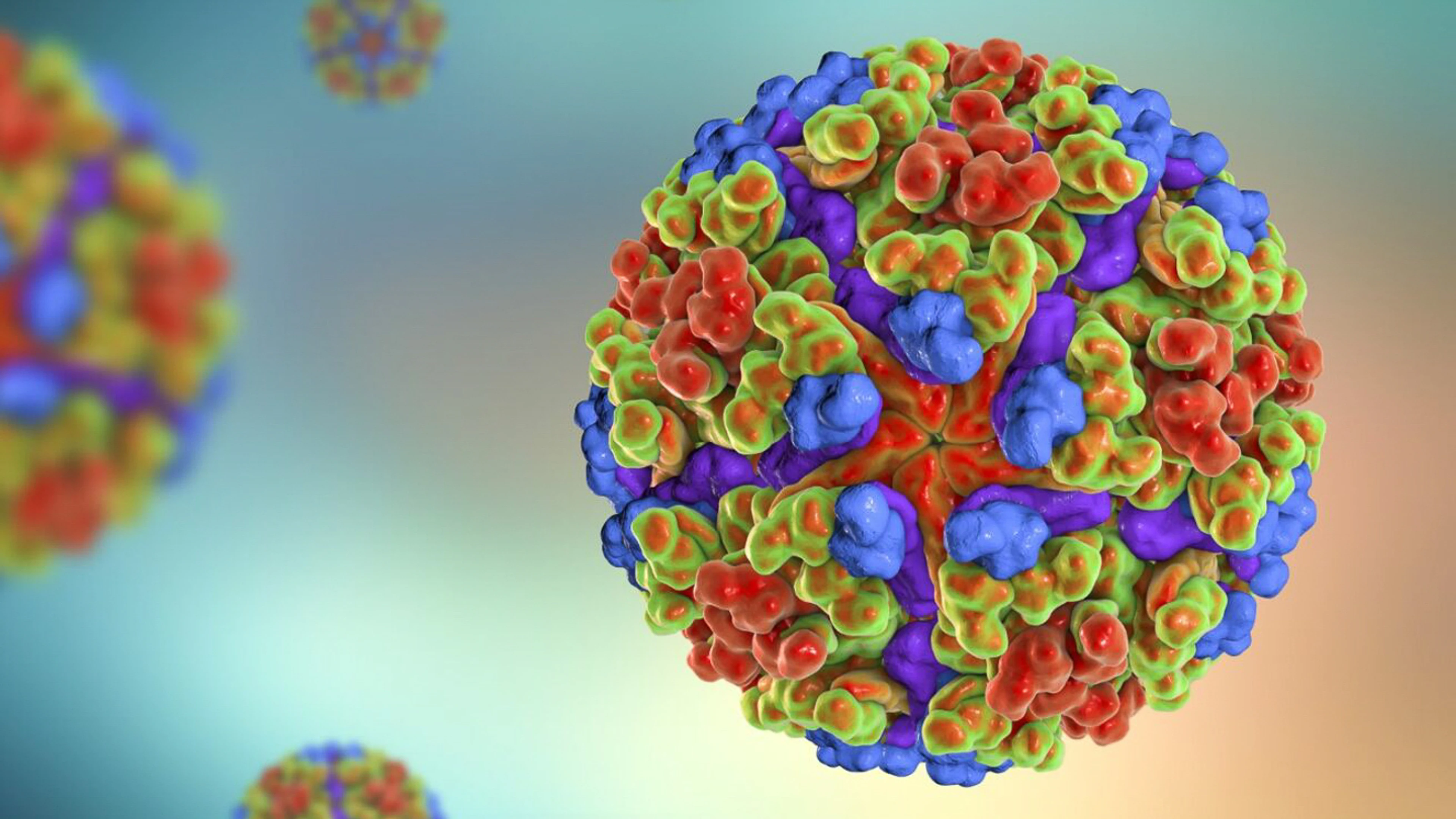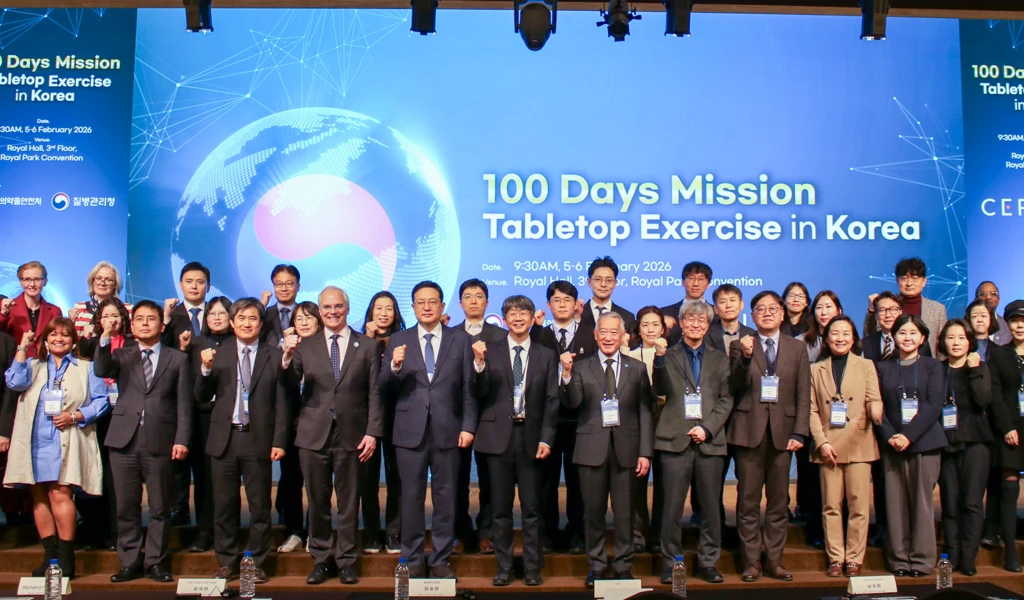CEPI expands partnership with Valneva with $41.3 million to support broader access to world’s first Chikungunya vaccine

- Valneva to receive up to $41.3 million from CEPI and the European Union to expand access to chikungunya vaccine, IXCHIQ
- Funding will support clinical trials in vulnerable groups, such as children and pregnant women
- Partnership will also support technology transfer to an additional manufacturer to supply IXCHIQ® to Asian LMICs
- IXCHIQ® is already approved for use in adults 18 years of age and older in the U.S., Canada and Europe
Oslo, Norway, and Saint-Herblain, France, July 22, 2024—The Coalition for Epidemic Preparedness Innovations (CEPI) and Valneva SE (Nasdaq: VALN; Euronext Paris: VLA), a specialty vaccine company, have expanded their partnership to support broader access to the world’s first chikungunya vaccine, IXCHIQ®, in Low- and Middle-Income countries (LMICs), as well as post-marketing trials and potential label extensions in children, adolescents and pregnant women.
CEPI will provide Valneva up to U.S. $41.3 million of additional funding over the next five years, with support from the European Union’s (EU) Horizon Europe programme. The project will help generate additional data to potentially support extended IXCHIQ® labels in chikungunya- endemic countries and vulnerable populations at risk of being infected with this debilitating mosquito-borne disease.
Several thousand participants are set to take part in the planned trials, due to start in 2025. The research will include assessment of the vaccine in children aged 1-11 and pregnant women in countries that may be affected by a chikungunya outbreak. Some trials are planned to be conducted in Brazil, which is currently facing a significant chikungunya outbreak with over 340,000 cases reported so far this year.
The expanded partnership strengthens an earlier agreement which awarded Valneva U.S. $24.6 million in CEPI-EU funding to develop, manufacture, and market its single-shot vaccine in certain LMICs affected by chikungunya. Under this initial agreement, Valneva partnered with Brazil’s Instituto Butantan (IB) in 2021 and conducted an adolescent clinical trial in Brazil to support licensure of the vaccine in this country, which would be the first potential approval for use in endemic populations, as well as label extension in this age group in the U.S. and other territories. Review of the marketing authorization application for IXCHIQ® by the Brazilian Health Regulatory Agency (ANVISA) is ongoing with potential approval in 2024. IB is committed to providing the chikungunya vaccine it will develop and produce in Brazil at an affordable price for distribution in Latin American countries and selected LMICs.
CEPI-EU funding will also support technology transfer of the vaccine drug product to an additional vaccine manufacturer to accelerate and expand access to IXCHIQ® in Asian LMICs that are vulnerable to chikungunya outbreaks.
Dr Richard Hatchett, Chief Executive Officer of CEPI, said, “Millions of people have been affected by chikungunya and, today, over a billion people live in areas where chikungunya outbreaks occur. Access to an affordable chikungunya vaccine in areas where the burden of disease is the greatest is a joint priority for CEPI, Valneva and our European Union partners. These clinical studies and tech transfer to an additional endemic-region manufacturer will accelerate endemic country access, inform future vaccine rollout strategies and alleviate the burden of future chikungunya outbreaks.”
Thomas Lingelbach, Chief Executive Officer of Valneva, said, “We are extremely pleased to strengthen our partnership with CEPI. Chikungunya infection is a major unmet medical need, and we believe that our single-dose vaccine is uniquely positioned to help protect people living in areas where chikungunya occurs and for travelers to these regions. With climate change, more areas across the world are becoming habitable for the mosquito vectors that transmit the virus, thereby increasing the size of the human population at risk of infection.”
Esper Kallás, Director of Instituto Butantan, said, “Arboviruses have become an increasing concern worldwide, due to climate change, which favors the adaptation of mosquitoes in other environments. This is highly relevant, and Butantan's effort to codevelop the chikungunya vaccine aligns with our mission to address public health problems not only in Brazil but worldwide.”
The European Commission’s Laurent Muschel, Head of HERA, and Irene Norstedt, Director at DG Research and Innovation, said “Access to medical countermeasures for the most vulnerable, such as the vaccine against Chikungunya, is a key priority for the EU when it comes to health emergency preparedness and response. €38 million have been mobilised under Horizon Europe, the Union’s funding programme for research, in partnership with CEPI, to support clinical studies on the effectiveness of Valneva’s new vaccine in low- and middle-income countries. Such vaccine, authorised in the EU since last month, also strongly contributes to improving preparedness against vector-borne diseases, that due to climate change, may expand to non-endemic regions such as the EU. Support for research is essential and the EU remains committed to strengthening global health.”
IXCHIQ® was granted approval in the U.S. in November 2023 and in Canada and Europe in June 2024. Regulatory reviews for IXCHIQ® are ongoing in Brazil and the United Kingdom.
—ENDS—
About the trials
Pending approvals, the new chikungunya vaccine trials will evaluate:
1. Effectiveness of IXCHIQ® in Brazil – Part-funded by CEPI and the EU’s Horizon Europe program, as part of a larger development program with over 120,000 participants assessing chikungunya in vaccinated and unvaccinated populations, as a measure of vaccine effectiveness
2. Efficacy of IXCHIQ® in an outbreak setting in a LMIC – Part- funded by CEPI and the EU’s Horizon Europe program as part of a trial in 20,000 participants to determine vaccine efficacy in a randomised-controlled trial outside of Brazil
3. Safety and immunogenicity of IXCHIQ® in pregnant women in Brazil
4. Optimal IXCHIQ® doses in children aged 1-11 in a low- and middle-income country in Latin America
5. Safety and immunogenicity of IXCHIQ® in children aged 1-11 in a LMIC, potentially located in Asia
Trial partners, including clinical research organisations and trial sponsors, are expected to be selected over the coming months.
About Chikungunya
Chikungunya virus (CHIKV) is a mosquito-borne viral disease spread by the bites of infected Aedes mosquitoes which causes fever, severe joint pain, muscle pain, headache, nausea, fatigue and rash. Joint pain is often debilitating and can persist for weeks to years.
In 2004, the disease began to spread quickly, causing large-scale outbreaks around the world. Since the re-emergence of the virus, CHIKV has now been identified in over 110 countries in Asia, Africa, Europe and the Americas. Between 2013 and 2023, more than 3.7 million cases were reported in the Americas and the economic impact is considered to be significant. The medical and economic burden is expected to grow with climate change as the mosquito vectors that transmit the disease continue to spread geographically. As such, the World Health Organization (WHO) has highlighted chikungunya as a major public health risk.
About CEPI
CEPI was launched in 2017 as an innovative partnership between public, private, philanthropic and civil organizations. Its mission is to accelerate the development of vaccines and other biologic countermeasures against epidemic and pandemic threats so they can be accessible to all people in need. CEPI has supported the development of more than 50 vaccine candidates or platform technologies against multiple known high-risk pathogens or a future Disease X. Central to CEPI’s pandemic-beating five-year plan for 2022-2026 is the ‘100 Days Mission’ to compress the time taken to develop safe, effective, globally accessible vaccines against new threats to just 100 days.
About Valneva
We are a specialty vaccine company that develops, manufactures, and commercializes prophylactic vaccines for infectious diseases addressing unmet medical needs. We take a highly specialized and targeted approach, applying our deep expertise across multiple vaccine modalities, focused on providing either first-, best- or only-in-class vaccine solutions.
We have a strong track record, having advanced multiple vaccines from early R&D to approvals, and currently market three proprietary travel vaccines, including the world’s first and only chikungunya vaccine, as well as certain third-party vaccines.
Revenues from our growing commercial business help fuel the continued advancement of our vaccine pipeline. This includes the only Lyme disease vaccine candidate in advanced clinical development, which is partnered with Pfizer, as well as vaccine candidates against the Zika virus and other global public health threats.
About Horizon Europe
Horizon Europe — #HorizonEU — is the European Union's flagship Research and Innovation programme, part of the EU-long-term Multiannual Financial Framework (MFF) with a budget of €95,5 billion to spend over a seven-year period (2021-2027). Under Horizon Europe, health research will be supported with the aim to find new ways to keep people healthy, prevent diseases, develop better diagnostics and more effective therapies, use personalised medicine approaches to improve healthcare and wellbeing, and take up innovative health technologies, such as digital ones.


.webp)
